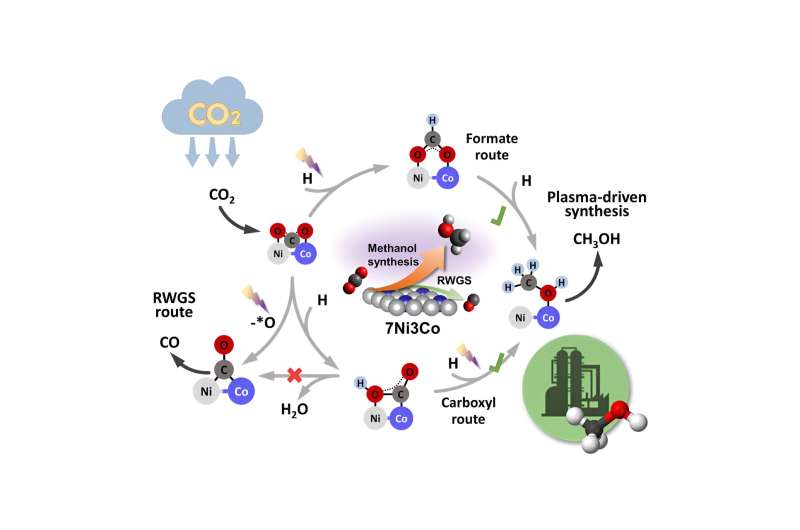Credit: Chem (2024). DOI: 10.1016/j.chempr.2024.06.022
A groundbreaking achievement by researchers at the University of Liverpool has unlocked a new era in the conversion of carbon dioxide (CO2) into valuable fuels and chemicals, paving the way for a sustainable net-zero economy.
Published in the prestigious journal Chem, the team’s innovative plasma-catalytic process for converting CO2 to methanol at room temperature and atmospheric pressure represents a major leap forward in green technology.
This cutting-edge approach overcomes the challenges of traditional thermal catalysis, offering high selectivity for methanol and increased CO2 conversion rates without the need for extreme conditions.
By utilizing a bimetallic Ni-Co catalyst in a non-thermal plasma reactor, the researchers achieved an impressive 46% selectivity for methanol and 24% CO2 conversion at mild operating conditions.
The use of non-thermal plasma, with its ability to activate strong chemical bonds in inert molecules like CO2, enables efficient chemical reactions to take place under gentle settings.
Furthermore, the flexibility of plasma-based modular systems allows for instant activation and deactivation, making it ideal for utilizing renewable electricity sources for decentralized production of fuels and chemicals.
2024-08-09 07:15:02
Article from phys.org
